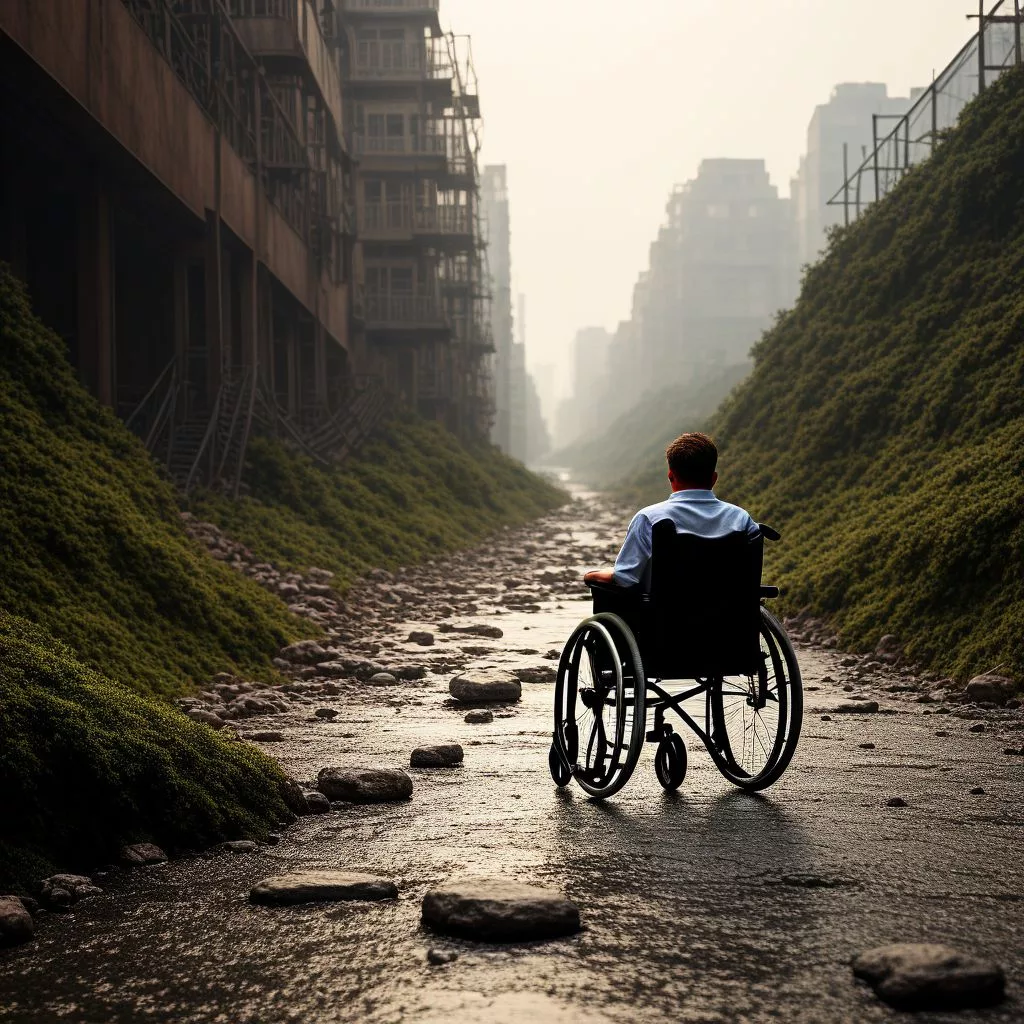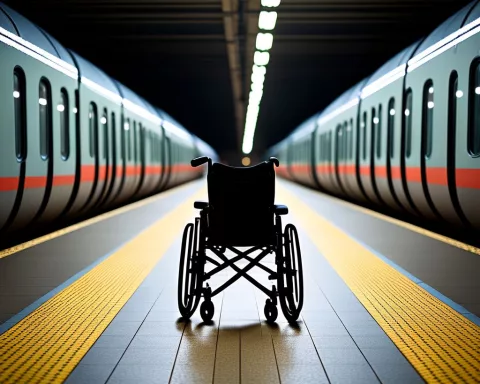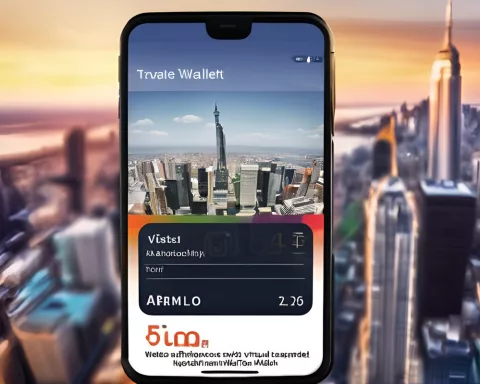In South Africa, people with disabilities face tough daily challenges that make life harder. Young Aphelele Rangula, who lives with cerebral palsy, shows us the struggles many face, like using public transport that isn’t wheelchair-friendly and dealing with long waits for special services. Financial worries add to their burdens, as grants often don’t cover basic needs. Despite these obstacles, there’s hope for change through advocacy and support from organizations pushing for better services and understanding. The journey to a more inclusive society is ongoing, but with teamwork and compassion, brighter days are ahead.
What are the main challenges faced by individuals with disabilities in South Africa?
Individuals with disabilities in South Africa face significant challenges, including:
– Inaccessible public transportation options
– Limited specialized services like Dial-a-Ride
– Financial constraints from insufficient disability grants
– Employment biases hindering job opportunities
These issues create systemic barriers that impact daily life and accessibility.
Daily Hurdles and Systemic Issues
In the vibrant cityscape of Cape Town, daily life presents a unique set of challenges and victories, especially for those living with disabilities. Aphelele Rangula, an 18-year-old with cerebral palsy, embodies this struggle and resilience. Her experiences illuminate the broader societal and infrastructural hurdles faced by South Africans with disabilities.
At the tender age of four, Rangula’s life took a drastic turn when she began experiencing seizures, leading to a diagnosis of cerebral palsy, a neurological disorder affecting movement and muscle coordination. Confined to a wheelchair, Rangula contends with daily obstacles that most people take for granted. Her story, however, transcends personal adversity, shedding light on the systemic issues impacting many others in her situation.
One of the most significant barriers for Rangula and others with disabilities is public transportation. After a particularly distressing incident in a minibus taxi, where fellow passengers complained about her wheelchair occupying space, Rangula now relies on e-hailing services. Although generally accommodating, these services come with a hefty financial burden. Living in Blue Downs, a suburb lacking in accessible public transport options, only exacerbates these challenges.
The Limits of Specialized Services
Cape Town does offer specialized services like Dial-a-Ride, designed to cater to individuals with disabilities. However, administrative issues and capacity constraints severely limit its effectiveness. Rangula applied for Dial-a-Ride in 2019 but has yet to receive a response. The City claims no record of her application, exposing significant gaps in service provision. Roberto Quintas, Mayco member for urban mobility, acknowledges that the system is oversubscribed, and new applicants have faced a moratorium since 2018. This bureaucratic tangle leaves many, including Rangula, in a state of uncertainty.
While MyCiTi buses are more inclusive, featuring tactile paving, reserved wheelchair spaces, and induction loops for hearing aids, their reach does not extend to Blue Downs, excluding Rangula from its benefits. Jeremy Hazell of the Western Cape Network on Disability praises the MyCiTi initiatives but points out inconsistencies in equipment functionality, such as malfunctioning belts, which pose safety risks.
The railway system also falls short in accessibility. Many stations lack ramps or functioning elevators, rendering them virtually unusable for those in wheelchairs. Zino Mihi, spokesperson for PRASA and Metrorail, mentions plans for improvements, but without a clear timeline, these promises offer little immediate relief.
Financial Strain and Employment Barriers
Financial constraints further complicate Rangula’s life. She receives a SASSA disability grant of R2,315 per month, but this amount barely covers essential expenses like transport and groceries for her household of six. The struggle to find accessible employment adds another layer of difficulty. Dayyaan Edries, another individual with cerebral palsy, shares similar frustrations. He notes that employers often harbor biases against hiring disabled individuals, making job opportunities scarce. Edries himself secured a learnership only after a year of searching.
Organizations like Disability Revolution and Freedom to the Forgotten work tirelessly to advocate for better government support. Nontsasa Mteza of Disability Revolution emphasizes the need for enhanced educational resources, such as braille materials and audiobooks, and calls for greater public awareness through media. Sibongiseni Faku from Freedom to the Forgotten insists that the government must directly engage with disabled communities to understand and address their needs better. He highlights the inadequacy of current disability grants, particularly for those supporting families.
Historical Context and Future Directions
Historically, societies have marginalized individuals with disabilities, pushing them to the fringes of cultural and economic life. This marginalization echoes attitudes prevalent during various artistic and intellectual movements. For instance, the Enlightenment era, with its focus on reason and human potential, largely ignored those who did not fit its ideals of able-bodied rationality. Similarly, the Industrial Revolution prioritized efficiency and productivity, often at the expense of inclusivity.
Modern movements are challenging these historical precedents. Contemporary art and literature increasingly explore themes of disability, challenging notions of normalcy and perfection. While these cultural shifts are crucial, they must be accompanied by tangible changes in policy and infrastructure to create a truly inclusive society.
Reflecting on Rangula’s story and the broader context, it’s clear that the challenges she faces are multifaceted. They involve not only physical barriers but also societal attitudes and systemic inefficiencies. Addressing these issues requires a holistic approach, combining immediate practical solutions with long-term strategic planning.
A Call for Comprehensive Change
In conclusion, Aphelele Rangula’s daily struggles highlight the broader challenges faced by disabled individuals in South Africa. Her story underscores the urgent need for more inclusive public services, better financial support, and greater societal awareness. While efforts like MyCiTi buses represent steps in the right direction, much work remains to be done to ensure that people with disabilities can navigate the world with dignity and ease.
The path to a more inclusive society involves a collective effort from the government, private sector, and civil society. By listening to the voices of those directly affected and implementing comprehensive changes, South Africa can move closer to a future where everyone, regardless of physical ability, has the opportunity to thrive.
“`markdown
Frequently Asked Questions (FAQ)
What are the primary challenges faced by individuals with disabilities in South Africa?
Individuals with disabilities in South Africa encounter numerous challenges, including:
– Inaccessible public transportation options
– Limited availability of specialized services such as Dial-a-Ride
– Financial difficulties due to insufficient disability grants
– Employment biases that restrict job opportunities
These challenges create systemic barriers that hinder accessibility and everyday living.
How does public transportation affect individuals with disabilities?
Public transportation serves as a significant obstacle for many individuals with disabilities. For instance, Aphelele Rangula, who uses a wheelchair, has faced difficulties with minibus taxis and has had to rely on e-hailing services, which can be financially burdensome. The lack of accessible public transport options exacerbates their daily struggles.
What is the situation with specialized services like Dial-a-Ride in South Africa?
While services like Dial-a-Ride exist to assist individuals with disabilities, they are fraught with issues such as administrative inefficiencies and capacity constraints. Many applicants, including Rangula, experience long wait times and face bureaucratic challenges, leaving them without adequate transportation support.
How do financial constraints impact individuals with disabilities?
Financial constraints significantly affect individuals with disabilities in South Africa. For example, Aphelele Rangula receives a SASSA disability grant of R2,315 per month, which is insufficient to cover her basic needs, including transportation and groceries for her household. This financial strain adds to the difficulty of achieving independence and stability.
What advocacy efforts are being made to improve conditions for individuals with disabilities?
Organizations like Disability Revolution and Freedom to the Forgotten are actively working to advocate for better government support and resources for individuals with disabilities. They emphasize the need for improved educational materials, public awareness, and direct engagement with disabled communities to better understand their needs.
How does societal attitude towards disabilities affect individuals’ opportunities?
Societal attitudes play a crucial role in shaping the experiences of individuals with disabilities. Many employers hold biases against hiring disabled individuals, which creates significant barriers to employment. This discrimination limits job opportunities and contributes to the ongoing financial challenges faced by many in the disabled community.
“`












